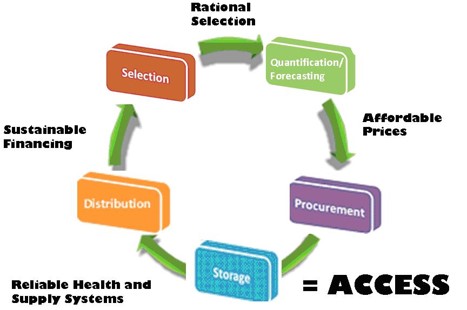Kenya Healthcare Federation supply chain committee held the last committee meeting of the year at Kenya Private Sector Alliance (KEPSA) offices on 22nd November 2018 to confer about Public-Private Partnership (PPP) areas in Supply Chain, Innovations in Health Product Distribution/Supply Chain, Promoting Local Manufacturing and the Role of Supply Chain towards achieving Universal Health Coverage (UHC). Dr. Chris Masila of PractHealth chaired the meeting.

Innovation in healthcare is rapidly growing and can contribute positively to healthcare accessibility. However, Mr. Rolando Satzke CEO, COSMOS Limited, raises a major concern that the patient is not put at the center of the innovations and that the quality of medicine must be maintained to the point of delivery. Further, Dr. Christine Sadia, Chair Kenya Medical Women Association, questioned whether the instructions of the prescription would be clear to the patient at point of delivery.
Dr. Nyalita backed the ideas by adding that most of the innovators focus on the commercial side which raises the question on quality. On the matter Mr. Rolando Satzke concluded by saying “I strongly suggest that all innovations should be patient centrered ensuring that all patients should be able to access quality medication without financial strain.” Dr. Anastasia Nyalita updated the committee on price regulations where she informed them that the Pharmacy and Poisons Board(PPB) is working on the price regulation strategies that was mandated by the Ministry of Health(MoH) and the final report will be ready by the beginning the year 2019. It was good to note that Kenya Healthcare Federation is well represented in the technical working group that is working together with the Pharmacy and Poisons Board.
There was a unanimous agreement by the supply chain committee that it will contribute and support UHC. However, price controls gives less opportunity for profit makers to distribute and resell drugs at a margin to typically unreachable markets, eventually resulting in less impact on patients. This argument links to the importance of patient awareness of and understanding of factors affecting commodity prices. Its important to bring this issue up now when the UHC is being strategized. Countries like Japan Switzerland, Ethiopia and Lesotho are good examples of price regulation models.
The committee has also been discussing the parallel importation Act and Dr. Nyalita updated the committee that the Act by PPB has been finalized and was presented at the Ministerial Stakeholder Forum and will be gazzetted. The Act will look into regulations of parallel importation and Illicit Trade.
On national coding of drugs, Dr. Nyalita updated the attendees on the consensus that was reached where KHF was asked to prepare and present a proposal to the Ministry of Health on coding of pharmaceutical products. In the ninth Ministerial Stakeholder Forum, it was agreed that Kenya should select a global pharmaceutical coding system such as the Anatomical Therapeutic Chemical Classification System(ATC) codes as used by PPB to register medicines. Dr. Daniella Munene was requested to work closely with PPB on this in order to propose a workable coding system for medicines. During the Ministerial Stakeholder Forum, it was agreed that the private sector should share an updated paper on the role of the Private Sector in achieving Universal Health Coverage. The presentation should include bottlenecks that should be addressed to increase coverage and access to quality, affordable healthcare for all.
